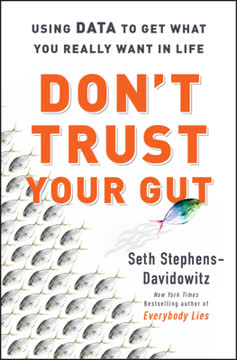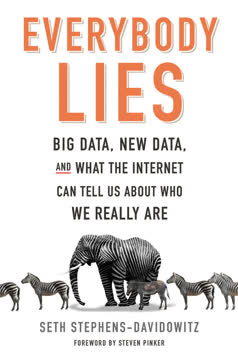Key Takeaways
1. Data-Driven Decisions Outperform Gut Feelings
You can make better life decisions. Big Data can help you.
Intuition's pitfalls. While gut feelings often guide us, they're prone to biases and misinformation. Big Data offers a more objective approach, revealing insights that can lead to better choices in various aspects of life.
Moneyball analogy. Just as Billy Beane revolutionized baseball by using data to identify undervalued players, we can apply data analysis to our personal lives. This involves examining large datasets to uncover patterns and insights that challenge conventional wisdom.
Examples of data-driven insights:
- Unconventional dating strategies can be more effective than traditional approaches.
- Certain neighborhoods offer better opportunities for children's success.
- Salespeople who limit their enthusiasm can be more persuasive.
By embracing a data-driven mindset, we can overcome our biases and make more informed decisions, leading to improved outcomes in our personal and professional lives.
2. Desirability Doesn't Equal Relationship Happiness
In the dating market, people compete ferociously for mates with qualities that do not increase one’s chances of romantic happiness.
The AI Marriage project. A large-scale study using machine learning found that demographics, preferences, and values have surprisingly little power in predicting relationship happiness. This challenges the conventional wisdom that shared interests or similar backgrounds are essential for a successful relationship.
Shiny qualities. Traits like physical attractiveness, height, and income are highly valued in the dating market but don't guarantee long-term happiness. Focusing on these "shiny qualities" can lead to disappointment.
Undervalued assets. Focusing on undervalued groups in the dating market, such as short men, extremely tall women, Asian men, and African-American women, can lead to less competition and a higher chance of finding a great partner. Qualities like satisfaction with life, secure attachment style, conscientiousness, and a growth mindset are more predictive of relationship happiness.
3. Neighborhoods Profoundly Shape a Child's Future
It takes a village to raise a child.
Neighborhood effects. Research shows that certain neighborhoods can dramatically improve a person's life outcomes, regardless of parental efforts. These neighborhoods aren't necessarily the most expensive or prestigious.
Opportunity Atlas. The Opportunity Atlas is a tool that maps the quality of every neighborhood in the United States, based on data from millions of tax records. It reveals that being raised in certain areas can significantly increase a child's income and reduce their likelihood of incarceration.
Key characteristics of successful neighborhoods:
- High percentage of college graduates
- High percentage of two-parent households
- High percentage of people who return their census forms
These factors suggest that the presence of positive adult role models and a strong sense of community are crucial for a child's development.
4. Passion + Hard Work > Innate Talent
Genes do not eliminate the need for hard work. They clarify it. They tell us what to work hard on.
The Sports Gene. While genetics play a significant role in athletic success, they don't determine everything. Some sports rely more on innate talent, while others offer opportunities for those with passion and dedication.
ScholarshipStats.com. This website provides data on the odds of getting a college scholarship for various sports. It reveals that some sports, like gymnastics and fencing, have a higher ratio of scholarships to athletes, making them potentially easier to break into.
Twins study. By analyzing the prevalence of identical twins in different sports, we can estimate the genetic contribution to success. Sports with fewer identical twins at the highest levels, such as equestrianism and diving, may offer more opportunities for those without exceptional genetic gifts.
Bruce Springsteen's daughter. Jessica Springsteen's success in equestrianism demonstrates that passion and hard work can overcome a lack of innate talent. By focusing on sports where dedication and training are more important than genetics, individuals can increase their chances of achieving athletic greatness.
5. Wealth Favors Business Owners in Specific Niches
It’s really boring. But every single day, we can make more and more money.
The rich own businesses. The majority of wealthy Americans are business owners, not salaried employees. Owning a business provides the potential for greater financial rewards than working for someone else.
The Get-Rich Chart. Certain industries offer a higher probability of wealth creation. These include real estate, investing, auto dealerships, independent creatives, market research, and middlemen.
Local monopolies. The most successful businesses often operate in niches where they can establish a local monopoly, limiting price competition and ensuring consistent profits. This can be achieved through legal protections, specialized knowledge, or strong branding.
The Get-Rich Checklist:
- Do I own a business?
- Does the business have a path to avoid ruthless price competition?
- Does the business have a path to avoid being dominated by a global behemoth?
6. Experience and Age Trump Youthful Hype in Entrepreneurship
People under 35 are the people who make change happen . . . people over 45 basically die in terms of new ideas.
The myth of the young founder. The media often portrays successful entrepreneurs as young prodigies, but data reveals a different story. The average age of a successful entrepreneur is 42.
The Insider's Advantage. Entrepreneurs with prior experience in their industry are more likely to succeed. This experience provides valuable knowledge, skills, and networks.
The Power of the Marginal. The idea that people who have failed a lot can actually have an edge in entrepreneurship is a myth. The conventionally successful massively outperform other employees as entrepreneurs.
Tony Fadell's story. Fadell's success with Nest Labs demonstrates the value of experience and expertise. He spent years honing his skills at General Magic, Philips Electronics, and Apple before striking out on his own.
7. Luck Can Be Hacked Through Strategic Action
seems replete with luck.
Luck is a random number. While luck plays a role in success, it's not the sole determinant. Successful people and organizations are better at capitalizing on the opportunities that come their way.
The Formula. There are patterns underlying luck. By adopting certain strategies, we can increase our chances of experiencing fortunate events.
Springsteen's Rule. Travel widely to find your break. By exposing yourself to new environments and opportunities, you increase the likelihood of stumbling upon a lucky connection or discovery.
Picasso's Rule. Put more work out there to let luck find you. The more you create and share, the greater the chances of your work resonating with someone who can help you succeed.
8. Happiness Requires Active Choices, Not Passive Consumption
A human mind is a wandering mind, and a wandering mind is an unhappy mind.
The Mappiness project. This project uses smartphone technology to collect data on people's happiness levels in different situations. It reveals that certain activities are consistently associated with greater well-being.
Underrated activities. Activities like going to museums, exercising, gardening, and shopping tend to make people happier than they realize. These activities often require effort and engagement.
Overrated activities. Activities like sleeping, relaxing, playing computer games, watching TV, and browsing the internet tend to provide less happiness than people expect. These passive activities can be tempting but ultimately unsatisfying.
The data-driven answer to life: be with your love, on an 80-degree and sunny day, overlooking a beautiful body of water, having sex.
9. Modern Life Presents Happiness Traps
Everything is amazing, and nobody is happy.
The paradox of progress. Despite advancements in technology and living standards, happiness levels haven't increased significantly. This suggests that modern life may contain traps that hinder our well-being.
The Work Trap. Work is often a source of misery, but it can be made more tolerable by listening to music, working from home, and collaborating with friends.
The "Not Spending Enough Time with Friends and Romantic Partner" Trap. We are happier when we are with our romantic partners and close friends.
The Social Media Trap. Social media can decrease happiness by exposing us to weak ties and promoting social comparison.
The Sports Trap. Being a passionate sports fan can lead to more pain than pleasure, as losses tend to hurt more than wins feel good.
The Booze Trap. Alcohol can provide a temporary mood boost, but it's important to use it wisely and avoid addiction.
Last updated:
FAQ
1. What’s "Don’t Trust Your Gut" by Seth Stephens-Davidowitz about?
- Data-driven life decisions: The book explores how Big Data and analytics can help individuals make better choices in relationships, careers, parenting, and happiness, challenging the reliability of gut instincts.
- Debunking common myths: Stephens-Davidowitz uses large-scale data to reveal that many widely held beliefs about success, happiness, and human behavior are often wrong.
- Practical applications: Through real-world examples and research, the author demonstrates how data can guide us to better outcomes in everyday life.
2. Why should I read "Don’t Trust Your Gut" by Seth Stephens-Davidowitz?
- Challenge your intuition: The book shows that gut feelings are frequently misleading due to cognitive biases, and that data offers a more reliable guide for important life decisions.
- Actionable, evidence-based advice: Readers gain practical strategies for improving dating, parenting, career choices, and happiness, all grounded in rigorous data analysis.
- Broad relevance: Whether you’re single, a parent, an entrepreneur, or simply curious about human behavior, the book’s insights are widely applicable.
3. What are the key takeaways from "Don’t Trust Your Gut" by Seth Stephens-Davidowitz?
- Intuition is often flawed: Relying on gut feelings can lead to suboptimal or biased decisions in major life areas.
- Data reveals hidden truths: Large datasets uncover surprising insights that challenge conventional wisdom, from what makes relationships work to how happiness is achieved.
- Practical, counterintuitive strategies: The book offers actionable advice that may feel wrong but is supported by data, such as being more extreme in self-presentation or focusing on neighborhood over parenting style.
4. What are the best quotes from "Don’t Trust Your Gut" by Seth Stephens-Davidowitz and what do they mean?
- “Moneyball for your life.” This quote encapsulates the book’s central idea: applying data analytics, as in baseball’s Moneyball revolution, to personal life decisions.
- “We date all wrong.” The author highlights how people often prioritize the wrong traits in dating, focusing on superficial qualities rather than those that predict long-term happiness.
- “Luck is not just random.” The book argues that while luck plays a role in success, data can help us recognize and capitalize on opportunities, making luck more predictable.
5. How does "Don’t Trust Your Gut" by Seth Stephens-Davidowitz use data to challenge common beliefs about relationships and dating?
- Traits that matter less: Data shows that demographics, preferences, and even shared values have little power in predicting relationship happiness.
- Personality and mindset: The strongest predictors of romantic happiness are a partner’s life satisfaction, secure attachment style, conscientiousness, and growth mindset.
- Similarity over opposites: Contrary to the “opposites attract” myth, people are generally happier with partners similar to themselves in values and personality.
6. What does "Don’t Trust Your Gut" by Seth Stephens-Davidowitz reveal about parenting and the impact of neighborhoods?
- Limited parental influence: Studies of adoptees and twins suggest that parenting style has a surprisingly small effect on children’s long-term outcomes.
- Neighborhood’s outsized role: Growing up in a high-opportunity neighborhood can increase a child’s future income by 12-25%, independent of family background.
- Role models matter: Exposure to successful adult role models in the community, especially those sharing a child’s race or gender, significantly boosts children’s chances of success.
7. What are the "infield shifts of life" and how do they apply in "Don’t Trust Your Gut" by Seth Stephens-Davidowitz?
- Counterintuitive strategies: Borrowing from baseball’s data-driven defensive shifts, the book highlights life decisions that may feel wrong but are supported by data.
- Examples in dating and sales: Being an extreme version of yourself can attract more interest in dating, and salespeople with less enthusiasm (a poker face) often outperform those who smile broadly.
- Embracing the odd: The book encourages readers to adopt strategies that go against intuition but are proven effective by data.
8. How does "Don’t Trust Your Gut" by Seth Stephens-Davidowitz explain the role of luck in success, and how can you "hack" it?
- Luck is significant but not everything: Both successful and average people experience similar numbers of lucky breaks; the difference is in recognizing and leveraging them.
- Persistence and exposure: Presenting your work or ideas widely and consistently increases the odds of stumbling upon success.
- Patterns of luck: Data reveals that networking, adaptability, and diversifying opportunities help create more “luck” rather than waiting for it passively.
9. What does "Don’t Trust Your Gut" by Seth Stephens-Davidowitz say about career success and entrepreneurship?
- Age and experience matter: The average successful entrepreneur is about 42 years old, and prior industry experience doubles the chances of success.
- Business ownership dominates wealth: Most wealthy Americans earn their fortunes from owning businesses, especially in fields with less competition and more legal protections.
- Debunking myths: The book challenges the idea that youth, outsider status, or being a marginal employee are advantages in entrepreneurship.
10. How does "Don’t Trust Your Gut" by Seth Stephens-Davidowitz address the impact of appearance and self-presentation on success?
- Appearance influences perception: Facial features and grooming strongly affect how others perceive competence, trustworthiness, and dominance, impacting outcomes in politics and business.
- Change is possible: Small adjustments in lighting, expression, or grooming can significantly alter perceptions, showing that appearance is not fixed.
- Data-driven makeovers: The author demonstrates how AI tools and rapid market research can help individuals find their most favorable look.
11. What are the major "traps" of modern life that reduce happiness, according to "Don’t Trust Your Gut" by Seth Stephens-Davidowitz?
- Work and social media: Work is often the most miserable activity, especially when done alone, and excessive social media use lowers happiness.
- Sports and alcohol: Sports fandom causes more pain from losses than pleasure from wins, and alcohol only boosts mood when making unpleasant activities more bearable.
- Nature deficit: Spending time in natural, scenic environments significantly increases happiness, even when simply having a view of nature indoors.
12. What is the "data-driven answer to life" and the happiness formula in "Don’t Trust Your Gut" by Seth Stephens-Davidowitz?
- Happiness is measurable: Using smartphone apps, researchers collected millions of real-time happiness reports linked to activities and environments.
- Key happiness factors: Sex, socializing, and being in nature rank highest for momentary happiness, while work, commuting, and social media rank lowest.
- Formula for happiness: The book concludes that social connections, meaningful activities, and environment are the most reliable, data-backed ingredients for a happy life.
Review Summary
Don't Trust Your Gut receives mixed reviews. Readers appreciate its data-driven approach to self-help and find it entertaining and thought-provoking. Many praise the author's writing style and humor. However, critics argue that the book oversimplifies complex issues, makes broad generalizations, and lacks depth in data analysis. Some question the practical applicability of the advice given. While some readers find valuable insights, others feel the book falls short of its potential, particularly in addressing ethical considerations and diverse perspectives.
Similar Books


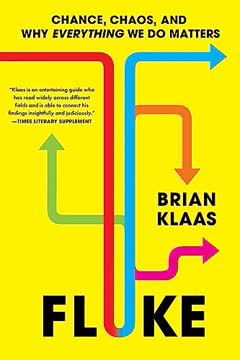


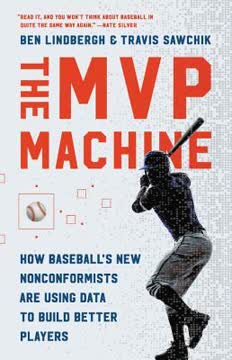

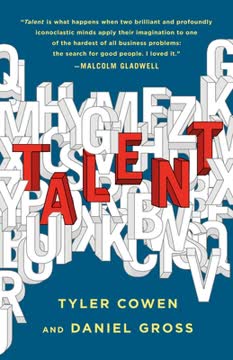
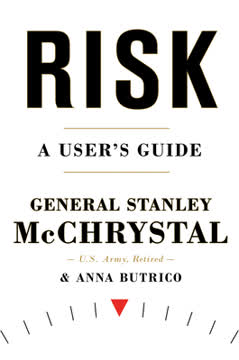
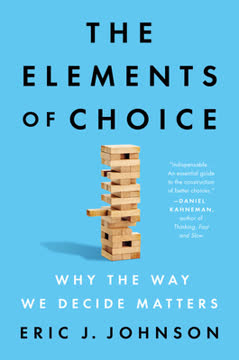
Download PDF
Download EPUB
.epub digital book format is ideal for reading ebooks on phones, tablets, and e-readers.
